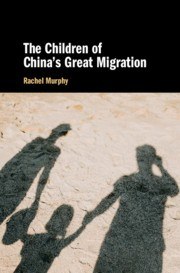The Children of China’s Great Migration
Douban
Rachel Murphy
résumé
In China in 2018 over 200 million rural migrants worked away from their hometowns, fuelling the country's rapid economic boom. In the 2010s over sixty-one million rural children had at least one parent who had migrated without them, while nearly half had been left behind by both parents. Rachel Murphy draws on her longitudinal fieldwork in two landlocked provinces to explore the experiences of these left-behind children and to examine the impact of this great migration on childhood in China and on family relationships. Using children's voices, Murphy provides a multi-faceted insight into experiences of parental migration, study pressures, poverty, institutional discrimination, patrilineal family culture, and reconfigured gendered and intergenerational relationships.
Based on rich first-hand interviews with left-behind children and their caregivers, as well as migrant parents in the cities
Casts fresh light on changing gender and generational relationships in rural families as China rapidly urbanizes
Provides a multi-faceted insight into children's experiences of parental migration and how their experiences, sentiments and relationships evolve overtime
contents
1. Understanding the lives of left-behind children in rural China;
2. Migration, education and family striving in four counties of Anhui and Jiangxi;
3. Sacrifice and study;
4. Boys' and girls' experiences of distribution in striving families;
5. Children in 'mother at-home, father out' families;
6. Children of lone-migrant mothers and at-home fathers;
7. Children in skipped generation families;
8. Left-behind children in striving teams;
Appendix: field research on left-behind children in China.